The Problem with Work – Feminism, Marxism, Antiwork Politics, and Postwork Imaginaries: A John Hope Franklin Center Book
Autor Kathi Weeksen Limba Engleză Paperback – 8 sep 2011
Din seria A John Hope Franklin Center Book
-
 Preț: 172.64 lei
Preț: 172.64 lei -
 Preț: 131.28 lei
Preț: 131.28 lei -
 Preț: 158.45 lei
Preț: 158.45 lei -
 Preț: 211.58 lei
Preț: 211.58 lei -
 Preț: 210.26 lei
Preț: 210.26 lei -
 Preț: 152.87 lei
Preț: 152.87 lei -
 Preț: 174.94 lei
Preț: 174.94 lei -
 Preț: 240.46 lei
Preț: 240.46 lei -
 Preț: 203.54 lei
Preț: 203.54 lei -
 Preț: 247.91 lei
Preț: 247.91 lei -
 Preț: 240.15 lei
Preț: 240.15 lei -
 Preț: 261.56 lei
Preț: 261.56 lei -
 Preț: 250.92 lei
Preț: 250.92 lei -
 Preț: 264.05 lei
Preț: 264.05 lei -
 Preț: 348.61 lei
Preț: 348.61 lei -
 Preț: 219.58 lei
Preț: 219.58 lei -
 Preț: 219.58 lei
Preț: 219.58 lei -
 Preț: 266.18 lei
Preț: 266.18 lei -
 Preț: 242.54 lei
Preț: 242.54 lei -
 Preț: 202.41 lei
Preț: 202.41 lei -
 Preț: 183.56 lei
Preț: 183.56 lei - 23%
 Preț: 887.39 lei
Preț: 887.39 lei -
 Preț: 301.38 lei
Preț: 301.38 lei -
 Preț: 307.95 lei
Preț: 307.95 lei -
 Preț: 306.77 lei
Preț: 306.77 lei -
 Preț: 302.19 lei
Preț: 302.19 lei -
 Preț: 286.07 lei
Preț: 286.07 lei -
 Preț: 241.40 lei
Preț: 241.40 lei -
 Preț: 304.31 lei
Preț: 304.31 lei -
 Preț: 262.91 lei
Preț: 262.91 lei -
 Preț: 265.20 lei
Preț: 265.20 lei -
 Preț: 262.70 lei
Preț: 262.70 lei -
 Preț: 229.65 lei
Preț: 229.65 lei - 9%
 Preț: 709.73 lei
Preț: 709.73 lei -
 Preț: 222.15 lei
Preț: 222.15 lei -
 Preț: 362.25 lei
Preț: 362.25 lei - 12%
 Preț: 134.13 lei
Preț: 134.13 lei
Preț: 166.71 lei
Nou
Puncte Express: 250
Preț estimativ în valută:
31.90€ • 33.54$ • 26.36£
31.90€ • 33.54$ • 26.36£
Carte disponibilă
Livrare economică 27 martie-10 aprilie
Livrare express 12-18 martie pentru 25.57 lei
Preluare comenzi: 021 569.72.76
Specificații
ISBN-13: 9780822351122
ISBN-10: 0822351129
Pagini: 304
Dimensiuni: 167 x 235 x 19 mm
Greutate: 0.38 kg
Editura: MD – Duke University Press
Seria A John Hope Franklin Center Book
ISBN-10: 0822351129
Pagini: 304
Dimensiuni: 167 x 235 x 19 mm
Greutate: 0.38 kg
Editura: MD – Duke University Press
Seria A John Hope Franklin Center Book
Cuprins
AcknowledgmentsIntroduction: The Problem with Work; 1: Mapping the Work Ethic; 2: Marxism, Productivism, and the Refusal of Work; 3: Working Demands: From Wages for Housework to Basic Income; 4: Hours for What We Will: Work, Family, and the Demand for; Shorter Hours; 5: The Future Is Now: Utopian Demands and the Temporalities of Hope; Epilogue: A Life beyond WorkNotes; References; Index
Recenzii
""Kathi Weeks excellent book shows us that the project to build a post-work society is a feminist project, one that understands that the real liberation of labor must be the liberation from labor. Antonio Negri, co-author Empire, Multitude, and Commonwealth
"Less work or better work? Should alienated labor be a focus of political economic critique or is it more important to question the centrality of work to life and productivity to self-worth? Kathi Weeks builds a feminist political theory of work from these questions. The result is a provocative argument that not only sheds new light on Second Wave feminism by putting the 1970s demand for wages for housework in dialogue with autonomist Marxism, but reminds that tradition of its debts to feminist theory and activism. Lisa Disch, University of Michigan
"The Problem of Work is one of the most exciting and original works of social theory that I have read in a great many years. Kathi Weekss argument is daring and extremely well executed, and her book is remarkable for its clarity, compulsive readability, and insightful synthesis of critical social theories. This is a truly wonderful book.--Judith Grant, author of Fundamental Feminism: Contesting the Core Concepts of Feminist Theory
"Theres no better way to spend the summer months than thinking about waged labor, which is why Im currently reading The Problem with Work, an inventive examination of how seemingly reformist measures such as universal basic income and reduced workweeks can be used as stepping stones toward a world beyond the daily grind." Frank Reynolds, The Nation, June 29th 2012
""Weeks succeeds in showing that antiwork critique must be an essential aspect of feminist politics, and in her proposal that a contemporary feminist time movement that seeks to reduce working hours must broaden the possibilities for nonwork time, including time for pleasure as well as fulfilment of duties an illuminating and inspiring book." - Victoria Browne, Radical Philosophy 175, Sept/Oct 2012
"[Weeks] convincingly shows how an imperative to be productive, at work, in the home, school and in life generally (Five Top Tips for Productive Dating Profiles!), is central to the way capitalism not only puts us to work but makes us want to be put to work. We think work is right and just and when we imagine another world, even a post-revolutionary world, we imagine a world of work. Weeks argues that we need to break the hold that work has on our imaginations. - Nicholas Beuret, Red Pepper, October 2012
"It opens with a discussion of the work ethic, as theorised by Max Weber and others, along with a consideration of its vulnerabilities, particularly in the context of post-Fordism. This ethic haunts even many critical approaches. Developing Jean Baudrillards 1975 critique of productivist Marxism, Weeks demonstrates how its limits continue to inflect many feminist as well as Marxist perspectives. Importantly, however, she also points towards counter-currents within these traditions advocating a refusal of work a strategy simultaneously understood as a creative practice, one that seeks to reappropriate and reconfigure existing forms of production and reprodiction" - Ben Trott, Political Studies Review, May 2013
"Kathi Week's excellent book shows us that the project to build a post-work society is a feminist project, one that understands that the real liberation of labor must be the liberation from labor." Antonio Negri, co-author Empire, Multitude, and Commonwealth "Less work or better work? Should alienated labor be a focus of political economic critique or is it more important to question the centrality of work to life and productivity to self-worth? Kathi Weeks builds a feminist political theory of work from these questions. The result is a provocative argument that not only sheds new light on Second Wave feminism by putting the 1970's demand for wages for housework in dialogue with autonomist Marxism, but reminds that tradition of its debts to feminist theory and activism." Lisa Disch, University of Michigan "The Problem of Work is one of the most exciting and original works of social theory that I have read in a great many years. Kathi Weeks's argument is daring and extremely well executed, and her book is remarkable for its clarity, compulsive readability, and insightful synthesis of critical social theories. This is a truly wonderful book."--Judith Grant, author of Fundamental Feminism: Contesting the Core Concepts of Feminist Theory "There's no better way to spend the summer months than thinking about waged labor, which is why I'm currently reading The Problem with Work, an inventive examination of how seemingly reformist measures such as universal basic income and reduced workweeks can be used as stepping stones toward a world beyond the daily grind." Frank Reynolds, The Nation, June 29th 2012 "Weeks...succeeds in showing that antiwork critique must be an essential aspect of feminist politics, and in her proposal that a contemporary 'feminist time movement' that seeks to reduce working hours must broaden the possibilities for nonwork time, including time for pleasure as well as fulfilment of duties... an illuminating and inspiring book." - Victoria Browne, Radical Philosophy 175, Sept/Oct 2012 "[Weeks] convincingly shows how an imperative to be productive, at work, in the home, school and in life generally ('Five Top Tips for Productive Dating Profiles!'), is central to the way capitalism not only puts us to work but makes us want to be put to work. We think work is right and just and when we imagine another world, even a 'post-revolutionary world', we imagine a world of work. Weeks argues that we need to break the hold that work has on our imaginations." - Nicholas Beuret, Red Pepper, October 2012 "It opens with a discussion of the work ethic, as theorised by Max Weber and others, along with a consideration of its vulnerabilities, particularly in the context of post-Fordism. This ethic haunts even many critical approaches. Developing Jean Baudrillard's 1975 critique of 'productivist' Marxism, Weeks demonstrates how its limits continue to inflect many feminist as well as Marxist perspectives. Importantly, however, she also points towards counter-currents within these traditions advocating a 'refusal of work' - a strategy simultaneously 'understood as a creative practice, one that seeks to reappropriate and reconfigure existing forms of production and reprodiction'" - Ben Trott, Political Studies Review, May 2013
"Less work or better work? Should alienated labor be a focus of political economic critique or is it more important to question the centrality of work to life and productivity to self-worth? Kathi Weeks builds a feminist political theory of work from these questions. The result is a provocative argument that not only sheds new light on Second Wave feminism by putting the 1970s demand for wages for housework in dialogue with autonomist Marxism, but reminds that tradition of its debts to feminist theory and activism. Lisa Disch, University of Michigan
"The Problem of Work is one of the most exciting and original works of social theory that I have read in a great many years. Kathi Weekss argument is daring and extremely well executed, and her book is remarkable for its clarity, compulsive readability, and insightful synthesis of critical social theories. This is a truly wonderful book.--Judith Grant, author of Fundamental Feminism: Contesting the Core Concepts of Feminist Theory
"Theres no better way to spend the summer months than thinking about waged labor, which is why Im currently reading The Problem with Work, an inventive examination of how seemingly reformist measures such as universal basic income and reduced workweeks can be used as stepping stones toward a world beyond the daily grind." Frank Reynolds, The Nation, June 29th 2012
""Weeks succeeds in showing that antiwork critique must be an essential aspect of feminist politics, and in her proposal that a contemporary feminist time movement that seeks to reduce working hours must broaden the possibilities for nonwork time, including time for pleasure as well as fulfilment of duties an illuminating and inspiring book." - Victoria Browne, Radical Philosophy 175, Sept/Oct 2012
"[Weeks] convincingly shows how an imperative to be productive, at work, in the home, school and in life generally (Five Top Tips for Productive Dating Profiles!), is central to the way capitalism not only puts us to work but makes us want to be put to work. We think work is right and just and when we imagine another world, even a post-revolutionary world, we imagine a world of work. Weeks argues that we need to break the hold that work has on our imaginations. - Nicholas Beuret, Red Pepper, October 2012
"It opens with a discussion of the work ethic, as theorised by Max Weber and others, along with a consideration of its vulnerabilities, particularly in the context of post-Fordism. This ethic haunts even many critical approaches. Developing Jean Baudrillards 1975 critique of productivist Marxism, Weeks demonstrates how its limits continue to inflect many feminist as well as Marxist perspectives. Importantly, however, she also points towards counter-currents within these traditions advocating a refusal of work a strategy simultaneously understood as a creative practice, one that seeks to reappropriate and reconfigure existing forms of production and reprodiction" - Ben Trott, Political Studies Review, May 2013
"Kathi Week's excellent book shows us that the project to build a post-work society is a feminist project, one that understands that the real liberation of labor must be the liberation from labor." Antonio Negri, co-author Empire, Multitude, and Commonwealth "Less work or better work? Should alienated labor be a focus of political economic critique or is it more important to question the centrality of work to life and productivity to self-worth? Kathi Weeks builds a feminist political theory of work from these questions. The result is a provocative argument that not only sheds new light on Second Wave feminism by putting the 1970's demand for wages for housework in dialogue with autonomist Marxism, but reminds that tradition of its debts to feminist theory and activism." Lisa Disch, University of Michigan "The Problem of Work is one of the most exciting and original works of social theory that I have read in a great many years. Kathi Weeks's argument is daring and extremely well executed, and her book is remarkable for its clarity, compulsive readability, and insightful synthesis of critical social theories. This is a truly wonderful book."--Judith Grant, author of Fundamental Feminism: Contesting the Core Concepts of Feminist Theory "There's no better way to spend the summer months than thinking about waged labor, which is why I'm currently reading The Problem with Work, an inventive examination of how seemingly reformist measures such as universal basic income and reduced workweeks can be used as stepping stones toward a world beyond the daily grind." Frank Reynolds, The Nation, June 29th 2012 "Weeks...succeeds in showing that antiwork critique must be an essential aspect of feminist politics, and in her proposal that a contemporary 'feminist time movement' that seeks to reduce working hours must broaden the possibilities for nonwork time, including time for pleasure as well as fulfilment of duties... an illuminating and inspiring book." - Victoria Browne, Radical Philosophy 175, Sept/Oct 2012 "[Weeks] convincingly shows how an imperative to be productive, at work, in the home, school and in life generally ('Five Top Tips for Productive Dating Profiles!'), is central to the way capitalism not only puts us to work but makes us want to be put to work. We think work is right and just and when we imagine another world, even a 'post-revolutionary world', we imagine a world of work. Weeks argues that we need to break the hold that work has on our imaginations." - Nicholas Beuret, Red Pepper, October 2012 "It opens with a discussion of the work ethic, as theorised by Max Weber and others, along with a consideration of its vulnerabilities, particularly in the context of post-Fordism. This ethic haunts even many critical approaches. Developing Jean Baudrillard's 1975 critique of 'productivist' Marxism, Weeks demonstrates how its limits continue to inflect many feminist as well as Marxist perspectives. Importantly, however, she also points towards counter-currents within these traditions advocating a 'refusal of work' - a strategy simultaneously 'understood as a creative practice, one that seeks to reappropriate and reconfigure existing forms of production and reprodiction'" - Ben Trott, Political Studies Review, May 2013
Notă biografică
Descriere
Challenges the presupposition that work, or waged labour, is inherently a social and political good
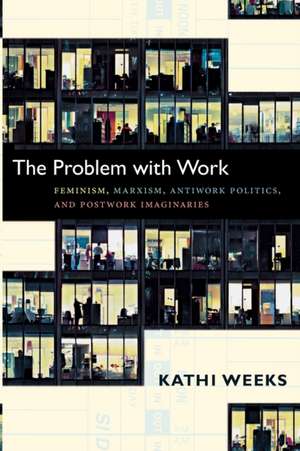





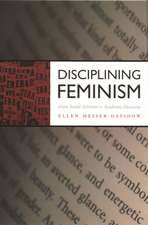
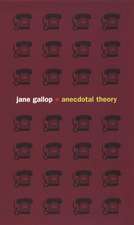


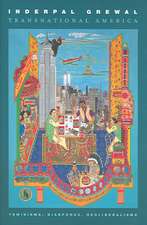
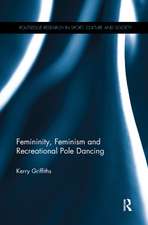
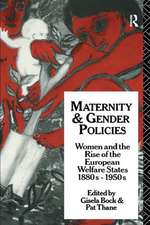


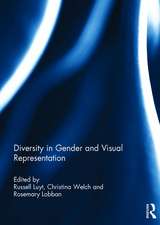

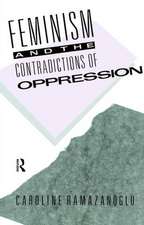
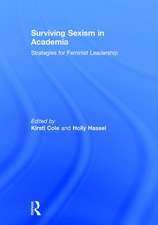



![Pregnancy [Does-Not-Equal] Childbearing Project](https://i3.books-express.ro/bt/9781786602930/pregnancy-does-not-equal-childbearing-project.jpg)
